#Wang Yi Qing
Explore tagged Tumblr posts
Photo
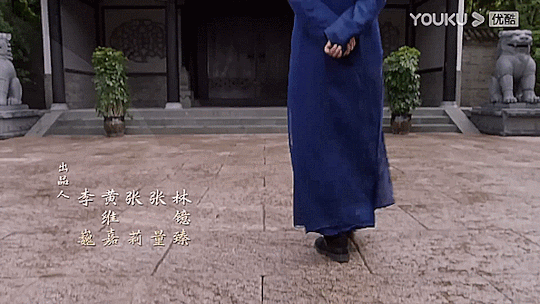



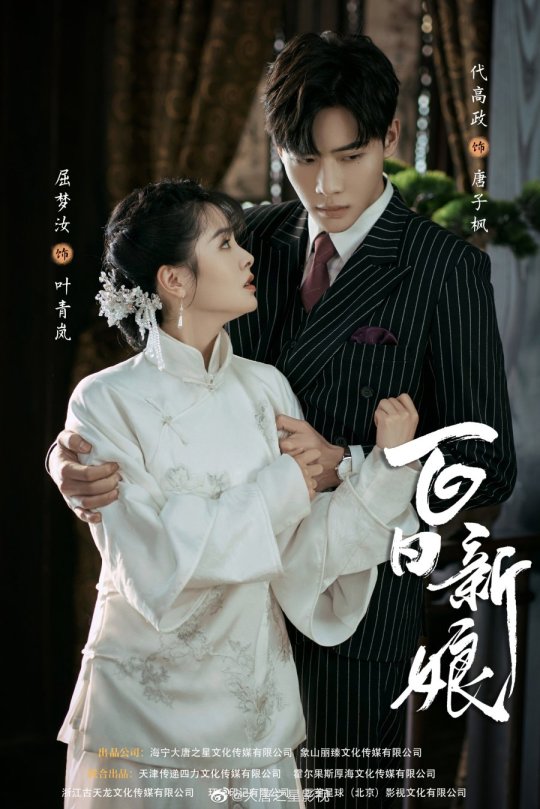
Cdrama: Bride's Revenge (2023)
Gifs of Intro of cdrama “Bride's Revenge”
ES PSUB [La venganza de la novia] EP01: Se casa con el que no ama | Romance/Traje Antiguo | YOUKU
Watch this video on Youtube: https://www.youtube.com/watch?v=75DNYvvzDpw
#Bride's Revenge#步步为陷#Bai Ri Xin Niang#百日新娘#Hundred Days Bride#两个星愿系列#Bu Bu Wei Xian#步步為陷#2023#cdrama#chinese drama#youtube#Youku#Qu Meng Ru#Vincent Wei#Dai Gao Zheng#Dong Yan#Wang Yi Qing#Zhang Rui En#Hou Ying Jue#Hu Xi Fan
26 notes
·
View notes
Text



Guardians of The Dafeng | Low profile?? You?
#Da Feng Da Geng Ren#大奉打更人#cdrama#guardians of the dafeng#wang hedi#dylan wang#character: xu qi an#song yi qi#character: song qing
63 notes
·
View notes
Text


they're in love
#i am nobody#yi ren zhi xia#Wang Ye#Zhuge Qing#yeqing#qingye#yeqingye#一人之下#王也#诸葛青#everyone go watch the show and read the manhua NOW
54 notes
·
View notes
Text

Women warriors in Chinese history - Part 2
(Part 1)
"However, court confessions, unofficial histories, and local gazetteers do reveal a host of women warriors during the Qing dynasty when patriarchal structures were supposedly most influential. Women in marginal groups were apparently not as observant of mainstream societal gender rules. Daughters and wives of “peasant rebels,” that is, autonomous or bandit stockades, were frequently skilled warriors. Miss Cai 蔡†(Ts’ai) of the Nian (Nien) “army,” for example, “fought better than a man, and she was especially fine on horseback. She was always at the front line, fighting fearlessly despite the large number of government troops.” According to a folktale, she managed to rout an invading government force of several thousand with a hundred men and one cannonball after her husband led most of the Nian off to forage for food.
Related to the female bandits were the women pirates among whom Zheng I Sao 鄭一嫂†(literally, Wife of Zheng I; 1775–1844) is the best researched. “A former prostitute … Cheng [Zheng] I Sao could truly be called the real ‘Dragon Lady’ of the South China Sea.” Consolidating her authority swiftly after the death of her husband, “she was able to win so much support that the pirates openly acclaimed her as the one person capable of holding the confederation together. As its leader she demonstrated her ability to take command by issuing orders, planning military campaigns, and proving that there were profits to be made in piracy. When the time came to dismantle the confederation, it was her negotiating skills above all that allowed her followers to cross the bridge from outlawry to officialdom.”
We know slightly more about some of the women warriors involved in sectarian revolts. Folk stories passed down orally are one of the sources. Tales that proliferated in northern Sichuan on the battle exploits of cult rebels of the White Lotus Religion uprising in Sichuan, Hunan, and Shaanxi beginning in the late eighteenth century glorify several women warriors. The tall and beautiful Big Feet Lan (Lan Dazhu 籃大足) and the smart and skillful Big Feet Xie (Xie Dazhu 謝大足) vanquished a stockade together; the young and attractive Woman He 何氏 could kill within a hundred feet by throwing daggers from horseback. The absence of bound feet in Big Feet Lan and Big Feet Xie suggests their backgrounds were either very poor, unconventional, or non-Han.
Sectarian groups accepted female membership readily, and many of these women trained in the martial arts. Qiu Ersao 邱二嫂†(ca. 1822–53), leader of a Heaven and Earth Society (Tiandihui 天地會) uprising in Guangxi, joined the sect because of poverty and perfected herself in the martial arts. Some women came to the sects with skills. Su Sanniang 蘇三娘, rebel leader of another sect of the Heaven and Earth Society, was the daughter of a martial arts instructor. Such sectarian rebel bands are frequently regarded as bandit groups. A history of the Taiping Revolutionary Movement refers to these two cult leaders as female bandit chiefs before they joined the Taipings.
Male leaders of religious rebellions frequently married women from families skilled in acrobatic, martial, and magic arts. These women tended to be both beautiful and charismatic. Wang Lun 王倫, who rebelled in 1774 in Shandong, had an “adopted daughter in name, mistress in fact,” by the name of Wu Sanniang 烏三娘 who was one of Wang’s most powerful warriors. Originally an itinerant performer highly skilled in boxing, tightrope walking, and acrobatics, she terrified the enemy with spellbinding magic. She brought a dozen associates from her old life to the sect, and they all became fearsome warriors known as “female immortals” (xiannü 仙女); three of them, including Wu Sanniang, lived with Wang Lun as “adopted wives” (ifu 義婦). A tall, white-haired woman at least sixty years old, possibly the mother of one of these acrobat-turned women warriors, wielded one sword with ease and two almost as effortlessly. Dressed in yellow astride a horse, hair loose and flying, she was feared as much for her sorcery as for her military skills. Her presence indicates that some of the women came from female-dominated itinerant performing families. Woman Zhang 張氏and Woman Zhao 趙氏, wives of Lin Zhe 林哲, another leader of the cult, were also known for being able to brandish a pair of broadswords on horseback.
Hong Xuanjiao 洪宣嬌†(mid nineteenth century), also known as Queen Xiao (xiaohou 蕭后), wife of the West King of the Taiping Heavenly Kingdom (taiping tianguo 太平天國), was so stunningly beautiful and impressive in swordsmanship that she mesmerized the entire army during battles. The link between early immortality beliefs and shamanism also suggests that these women warrior “immortals” of sectarian cults may represent surviving relics of the female shamans who occupied high positions during high antiquity.
During the White Lotus Religion rebellion in Sichuan, Hunan, and Shaanxi beginning in 1796, five of the generals were at once leaders and wives of other leaders of the cult. They were Woman Qi née Wang (Qiwangshi 齊王氏; Wang Cong’er 王聰兒), Woman Zhang née Wang (Zhangwangshi 張王氏), Woman Xu née Li (Xulishi 徐李氏), Woman Fan née Zhang (Fanzhangshi 范張氏), and Woman Wang 王†née Li 李 (Wanglishi 王李氏). In the Heavenly Principle Religion (tianlijiao 天理教) rebellion that began in Beijing during 1713, the wife of its leader, Li Wencheng 李文成, led three invasions into the city. There was even a “Female Army” (niangzijun 娘子軍) within the Eight Trigrams (baguajiao 八卦教) uprising in Shandong during the Daoguang 道光† reign (1821–51). The female generals, Cheng Sijie 程四姐†and Yang Wujie ��五姐, were particularly impressive when they wove among enemy forces in the style of “butterflies flitting among flowers,” wielding broadswords on horseback, their hairpins glittering in the light.
A number of female rebel leaders used religion and magic to buttress their power. Many claimed to be celestials and were leaders of sectarian cults (...). Chen Shuozhen 陳碩貞†(?–653) mobilized a peasants’ uprising by declaring that she had ascended to heaven and become an immortal. Tang Sai’er (ca.1403–20), a head of the White Lotus Religion (bailianjiao 白蓮教), designated herself as a “Buddhist Mother” (fuomu 佛母). The spellbinding old woman warrior in Wang Lun’s Clear Water Religion (qingshuijiao 清水教) sect was known to the rebel community as a reincarnation of the highest White Lotus deity, the Eternal Venerable Mother (wusheng laomu 無生老母). Wang Lun relied on her for performing magic and the rituals for calling on their supreme deity. Woman Wang née Liu (wangliushi 王劉氏), one of the numerous female leaders of the White Lotus Religion revolt, also titled herself the Eternal Venerable Mother. Wang Cong’er (1777–98), originally an itinerant entertainer, became the commander in chief of the rebel army she launched with her husband, a master in the White Lotus Religion.
Indeed, itinerant performers such as Wu Sanniang mentioned above were frequently trained in the martial arts since childhood and must have been skilled at performing magic tricks as well. Lin Hei’er 林黑兒†(?–1900), leader of Red Lanterns (hongdengzhao 紅燈照), the young women’s branch of the Boxer’s Movement (yihetuan 義和團), was also originally an itinerant entertainer (her husband was a boatman). Designating herself the Holy Mother of the Yellow Lotus (huanglian shengmu 黃蓮聖母), she taught her followers the skills of wielding swords and waving fans as well as magic to defeat their enemies. Wang Nangxian 王囊仙†(literally, Goddess Nang, 1778–97), an ethnic minority of the Miao tribe, was worshipped as a goddess by her tribesmen before she led them in revolt against the Chinese government."
Chinese shadow theatre: history, popular religion, and women warriors, Fan Pen Li Chen
#history#women in history#women warriors#warriors#warrior women#china#chinese history#asian history#historyblr#qing dynasty#19 century#18th century#Wang Cong’er#hong xuanjiao#su sanniang#qiu ersao#tang sai'er#asia#Zheng Yi Sao
198 notes
·
View notes
Text

Original title: Lang Jun Bu Ru Yi | 郎君不如意.
#tv shows#tv series#polls#the princess and the werewolf#wu xuan yi#chen zhe yuan#wang lu qing#2020s series#chinese series#have you seen this series poll
16 notes
·
View notes
Text
Wang Ye & Zhuge Qing (They call each other Lao Wang and Lao Qing)
Wang Ye - The skilled martial artist who defeated Zhuge Qing in a tournament, changed Zhuge Qing's fate, and became friends with Zhuge Qing. A good youth from rich family but spent more time in Wudang temple most of his life. His martials arts is not only powerful but it let him predict a person's future. Mature for his age and tend to look after everyone he cares about. Look lazy but has a righteous heart.
Zhuge Qing - A proud competitive martial artist and very popular to the ladies. He's also a spell caster like Wang Ye. He developed a restless mind and inner demon after being defeated by Wang Ye. He wish to be equal with Wang Ye so he befriended him with malice and he hate himself for that. He admire good guys like Wang Ye who look after others because he said he only care about himself.
In this arc s4-5, Zhuge Qing colluded with possibly bad person hoping to get new power from it and worried good friend Wang Ye decided to drag him back away from the bad guys.
Summary of their dynamic in this arc
Zhuge Qing: I'm evil now. Wang Ye: *who's stronger than him preparing his fist* Zhuge Qing: No no no!! I'm not with them anymore!!
Or
Wang Ye: I'm watching you, mister. Zhuge Qing: *smiles* Go ahead and guess.
17 notes
·
View notes
Text
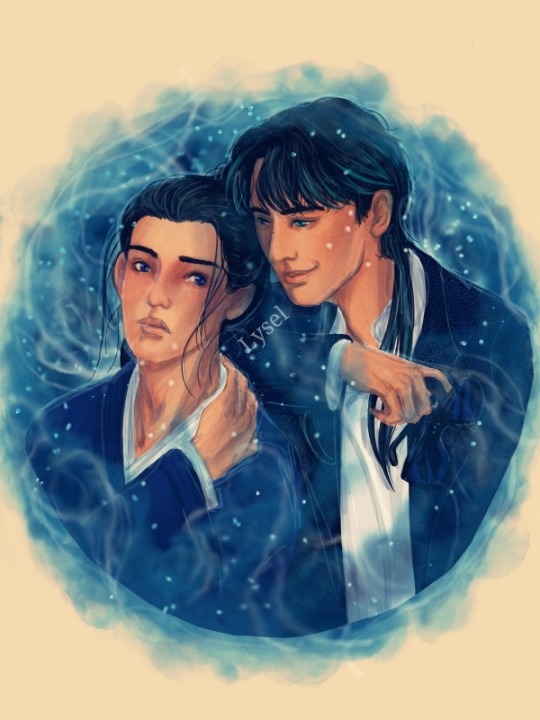
Pitch black, pale blue • There was a stained-glass, variation of the truth • And I felt empty-handed
I'm only honest when it rains • If I time it right, the thunder breaks • When I open my mouth • I wanna tell you, but I don't know how
Sleeping at Last - Neptune
I binged I am Nobody 異人之下 in 3 days and it's really good!! So many cool characters and I like many of them but I'm especially soft for ZhuGê Qing 諸葛青 and Wáng Yê 王也!
...☕?/commission
#i am nobody#the outcast#异人之下#wang ye#zhuge qing#yi ren zhi xia#hitori no shita#cdrama#lyselkatzcreations#fanart#cnovelartreblogs
43 notes
·
View notes
Text
Wang Ye & Zhuge Qing - Timro Pratiksha
youtube
#i am nobody#yi ren zhi xia#wang ye#zhuge qing#Qingye#YeQing#hou ming hao#neo hou#wanyan luorong#Edit
11 notes
·
View notes
Text



photos of wang yibo in blackface from his role in an upcoming movie. he is a racist
#wang yibo#wangyibo#王一博#wang yi bo#the untamed#the grandmaster of demonic cultivation#grandmaster of demonic cultivation#cql#chen qing ling
5 notes
·
View notes
Photo



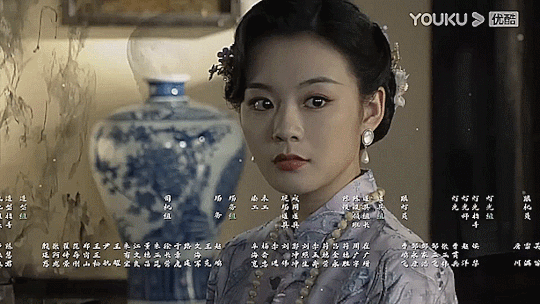
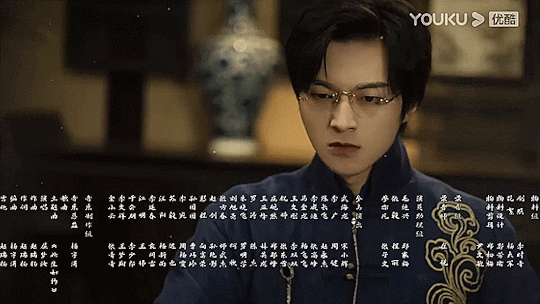
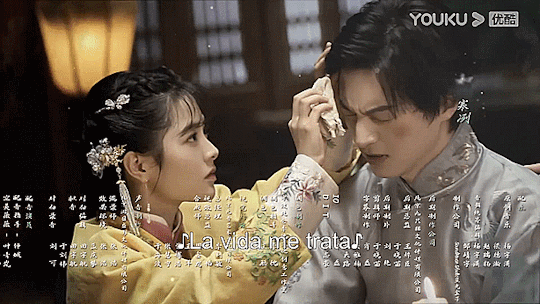

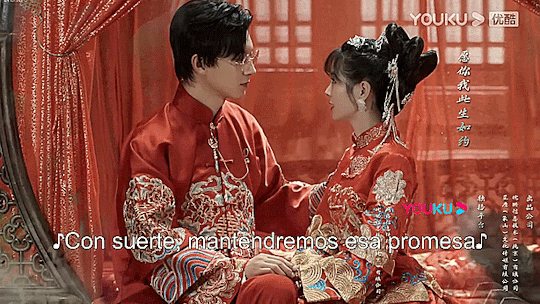
Cdrama: Bride’s Revenge (2023)
Gifs of Ending of cdrama “Bride’s Revenge”
ES PSUB [La venganza de la novia] EP01: Se casa con el que no ama | Romance/Traje Antiguo | YOUKU
Watch this video on Youtube: https://www.youtube.com/watch?v=75DNYvvzDpw
#Bride's Revenge#步步为陷#Bai Ri Xin Niang#百日新娘#Hundred Days Bride#两个星愿系列#Bu Bu Wei Xian#步步為陷#2023#cdrama#chinese drama#youtube#Youku#Qu Meng Ru#Vincent Wei#Dai Gao Zheng#Dong Yan#Wang Yi Qing#Zhang Rui En#Hou Ying Jue#Hu Xi Fan#episode 1#1st episode
16 notes
·
View notes
Text



Go East ep 34 | Let's tie the knot.
#go east#cdrama#tan jian ci#character: yuan mo#zhou yi ran#character: a shu#they are made for each other#du chun#character: wang kun wu#kan qing zi#character: yuchi hua
29 notes
·
View notes
Text

reunion morning 🥰🥰
7 notes
·
View notes
Text
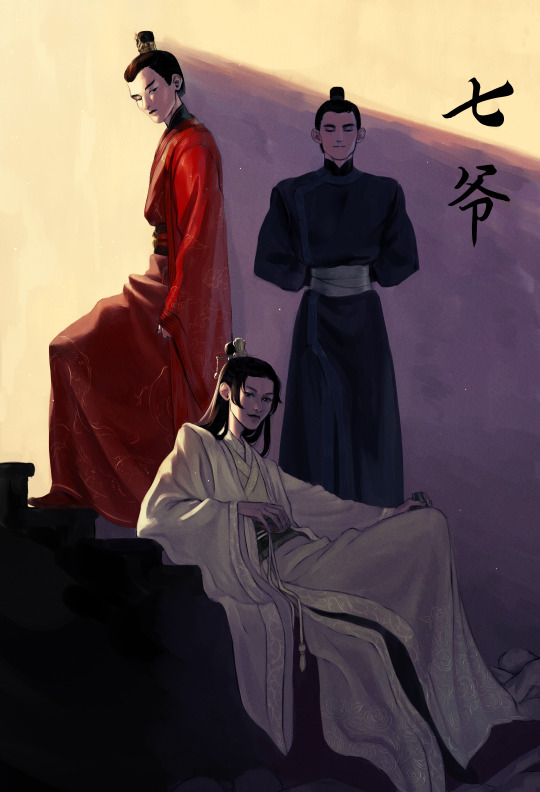
The one and only Qi Ye trio!
Details on the painting, meta and more below!
So this piece is actually a "remake" of a much older drawing that I made right after I had finished reading Qi Ye:

First, I want to elaborate on the drawing itself. I usually don't like to detail the symbolism and ideas that I put in my art, simply because I don't want to impose a reading and I'd rather everyone gets their own; but following some discussions I have decided to do so for this one.
The main theme of this illustration is glory, power, and the ascention towards it. The principal symbol of it is, of course, the stairs going up. I used light, directly, colours and positioning to signify each character's relationship to those themes.
Helian Yi is the one in the light, ascending upwards, in red clothing. Helian Yi's power, as future emperor, is in the light, visible, going towards the heavens as the son of heaven himself--to enact his heavenly duty. Part of his face is in the shadows, and his being casts a broad shadow behind him for, of course, a lot has to happen in the shadows for him to reach the throne. He's looking behind as his ascension comes with dread and paranoia, never being able to fully trust anyone.
Zhou Zishu is entirely in the shadows, doesn't exist in the light. He's standing tall on the stairs but not facing upwards because his own way towards power isn't following the traditional path of having one's name being remembered in historical records. He is at his most powerful concealed in the shadows and doesn't look directly, his gaze unreadable.
Jing Beiyuan is sitting on the stairs, uninterested with the climb towards power itself, uninterested in the glory. The thin line of light on his figure means that among Helian Yi's closest allies, he's the one using his title and influence; light grazes him even if he doesn't want it to. His presence in Helian Yi's shadow signifies how he, along with Zishu, is quite literally behind HLY's ascension. His gaze is knowingly directed towards the watcher.
The main reason I decided to repaint it was because I wanted it to match my current style and, more importantly, my current mental image/character design for them. Jing Qi barely changed since my idea of him was fairly clear from the start, but Helian Yi and Zishu went through much bigger changes.
For Helian Yi, it was mainly a question from taking him out of Jin Wang's robes to get him his own. I really like Jin Wang's wardrobe in SHL, which is why I initially wanted it for HLY, but nowadays it simply doesn't correspond to how I picture him anymore. My understanding and/or envisioning of Da Qing's fashion has changed a bit as well, so I wanted to reflect that. In the original, he more seemed like a kid in vaguely chique robes that were too big for him LOL. His face was afforded a bit of refinement as well, especially since my big Qi Ye spread.
Jing Qi's robes are just a tad less flashy somehow--which wasn't so much planned as just... another design I had in mind. I still really like the first version of the robes but, oh well. His face is a bit more defined now, and overall more details in the quality of his clothing and in his hair piece.
Zhou Zishu...... well, haha. His original design was quite unpolished--a vague mix of SHL!Zishu and some random hakama I barely worked on. He was also very slim and had big eyes, which I just don't see anymore. He's bigger now, by quite a bit, both in height and musculature, and I made him look just a bit older as well--simply because he is older than HLY and JBY by a few years. I much prefer his current expression which is a tad more vicious but also a bit harder to read (I think). His robes, hair shape are much better defined and thought-out, and I am happy with the subtle shading on his face.
That's it!! Thanks for readiinngggg as always!
407 notes
·
View notes
Note
Hiii, how are you? I hope you are doing ok! <3 sending love and hugs. I wanted to ask you... i think i remember something about tgcf having live action adaptation. Was that real or was just a dream i had or something? If it's real do you know if we will have it or what happened to the project? Idk if my mind made that up! sorry and thanks :)
Hiii Anon!
No, it's not some mad collective fever dream we all had, they really did film it (6 months of shooting between July 2021 and January 2022). Native title is 吉星高照 (Ji Xing Gao Zhao) English title is Eternal Faith.
If we ever get to see it is another matter, i probably don't need to say the main reason is because it's a danmei adaptation - it'll have a harder time passing the censors than the average cdrama. Since the popularity of other dangais it seems the censors have become stricter in any case. Job one is always going to be passing the censors.
While checking chinese websites and articles I did find several sources of a rumour that the site security punched a girl who was visiting the set. I can't vouch for the reliability of this but anything that can potentially attract criticism can delay a cdrama release further. Other criticisms include the casting of the male leads, how cheap the set design and costuming look, and a cancelled actress who may have to remain uncredited.
So it will need to satisfy the censors in order to be relased, as well as satisfy the general public and tgcf fans to be worth releasing and I'm not sure if it can do it all. If all goes well and it does ever pass censorship, we won't get a release date in advance. I don't know if you've ever experienced waiting for a cdrama release but you will not get much warning when it airs. It will likey drop with a couple days warning in form of internet rumours, or just completely out of the blue.
HAVING SAID THAT - another rumour is that a full costume bl drama like the untamed will be released internationally in Sept 2024, bypassing a Chinese release. It's just a rumour but it does make this webpage very interesting! But please remember everything above and not get too excited just yet 😂.
I'm gonna share some set photos just because 😍
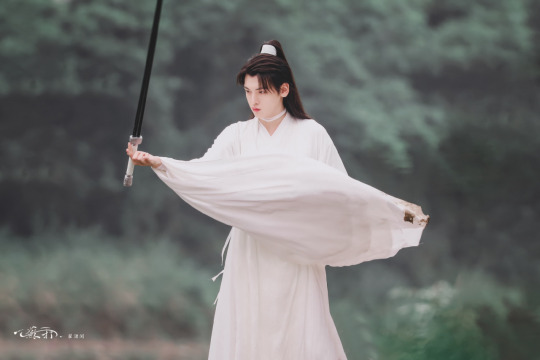
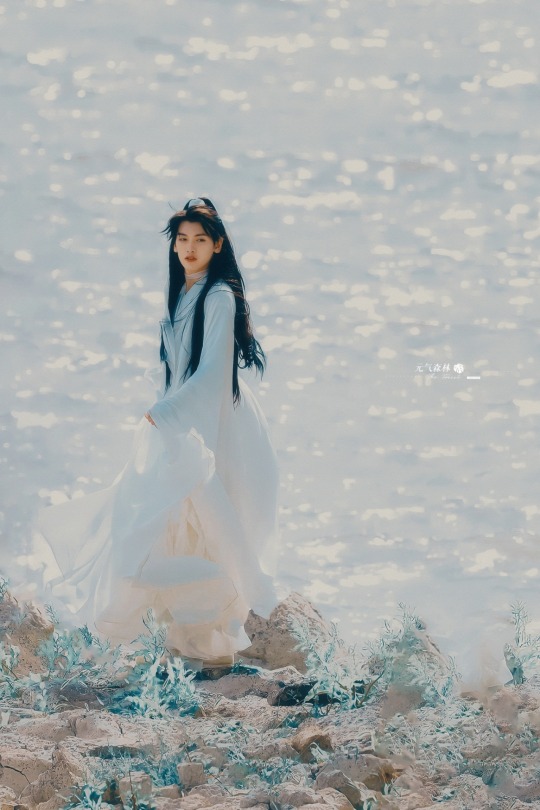
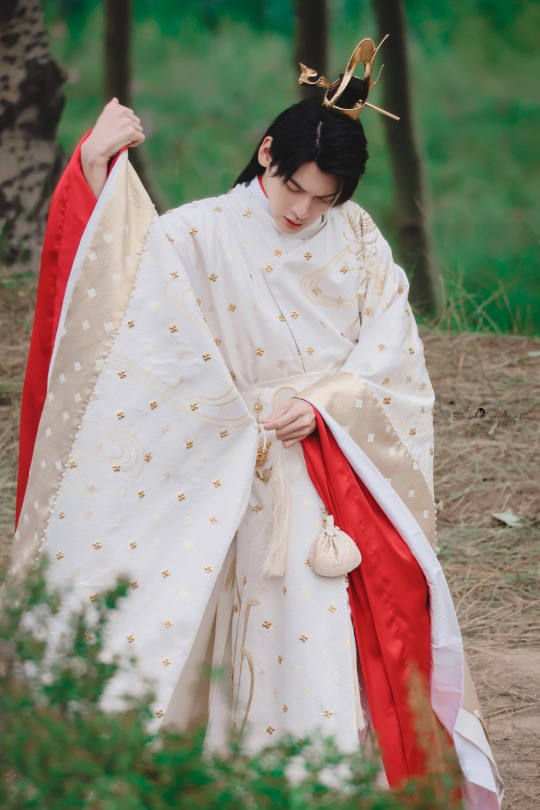
Zhai Xiaowen as Xie Lian
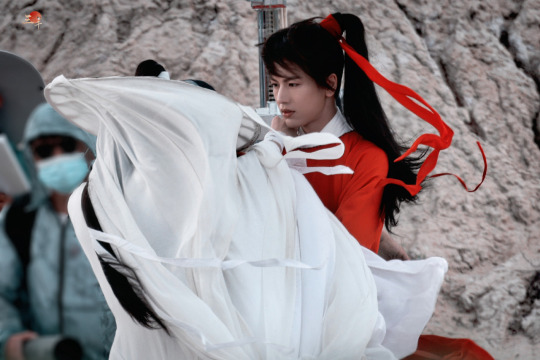

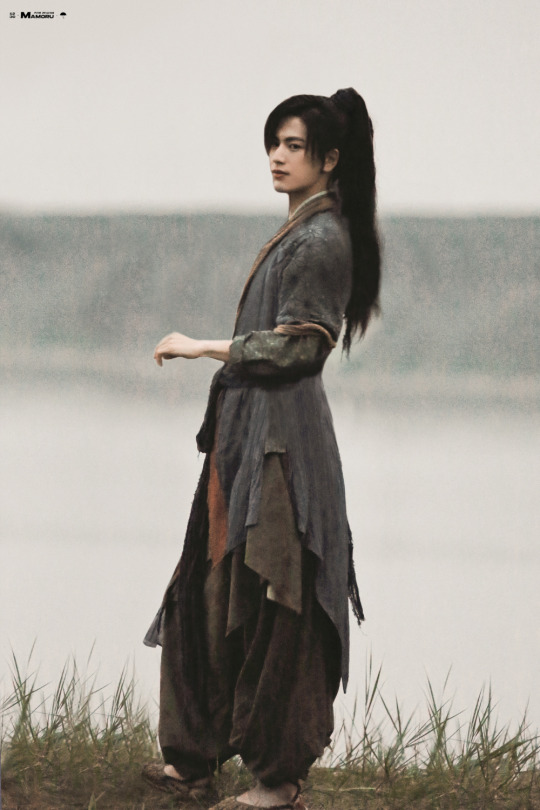
Zhang Linghe as Hua Cheng/San Lang/Crimson Rain Sought Flower
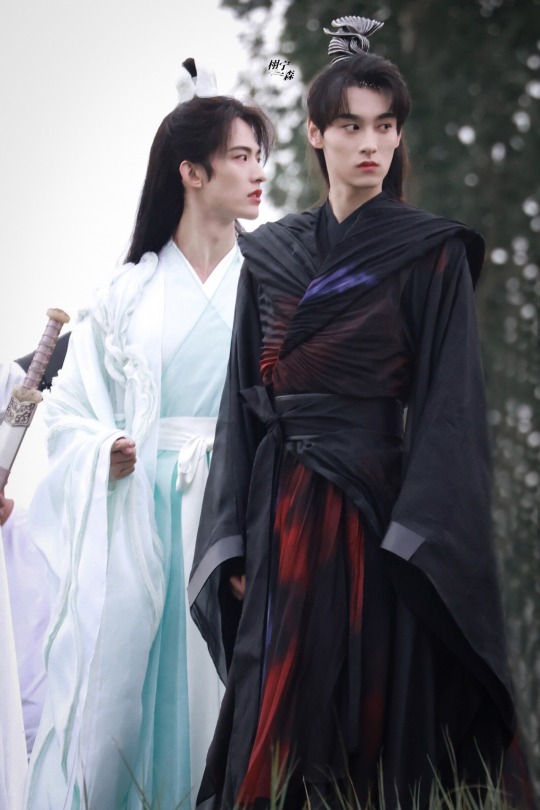
Chang Huasen as Shi Qingxuan/Wind Master & Tian Xuning as He Xuan/Ming Yi/Earth Master
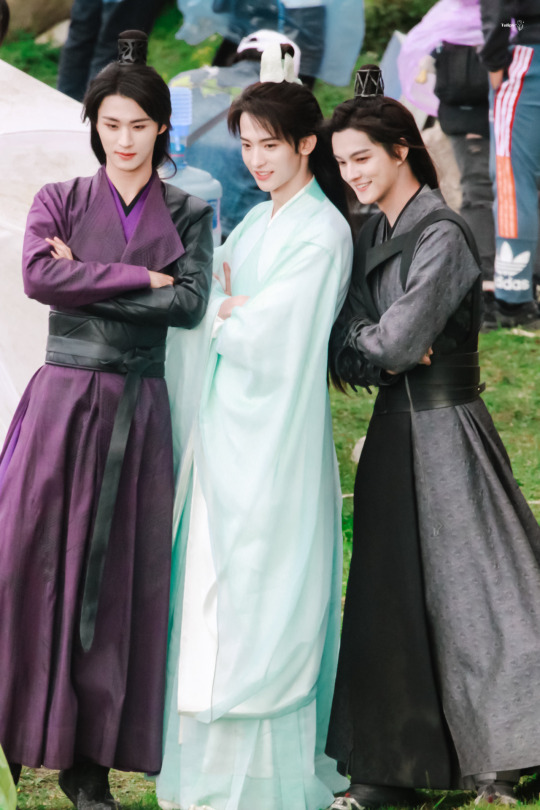
Vin Zheng as Nan Feng & Li Fancheng as Fu Yao (+ bonus Wind Master)
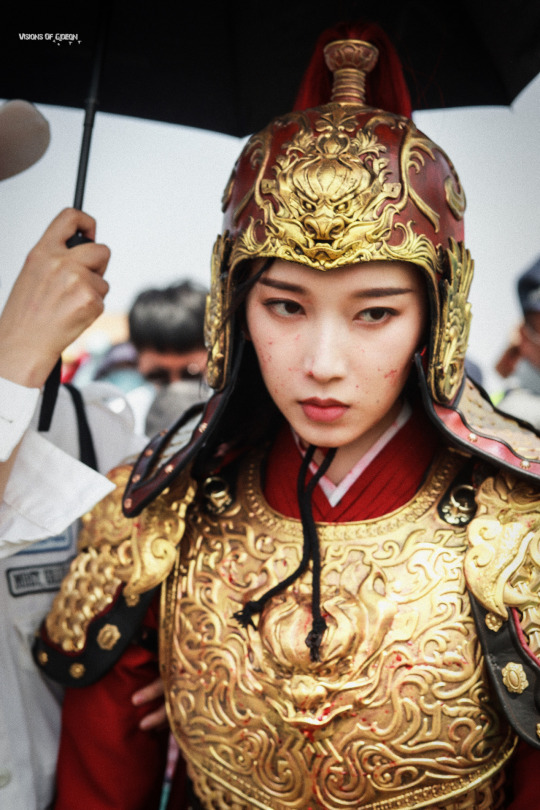
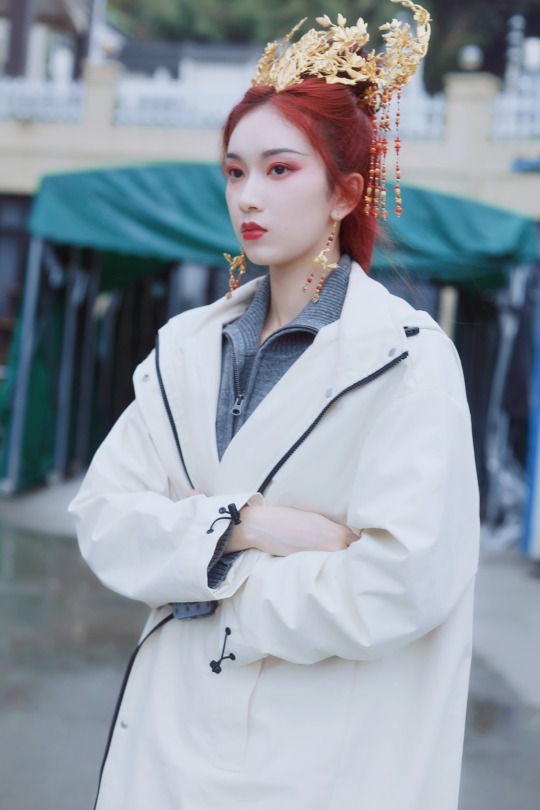
Liu Lingzi as Xuan Ji
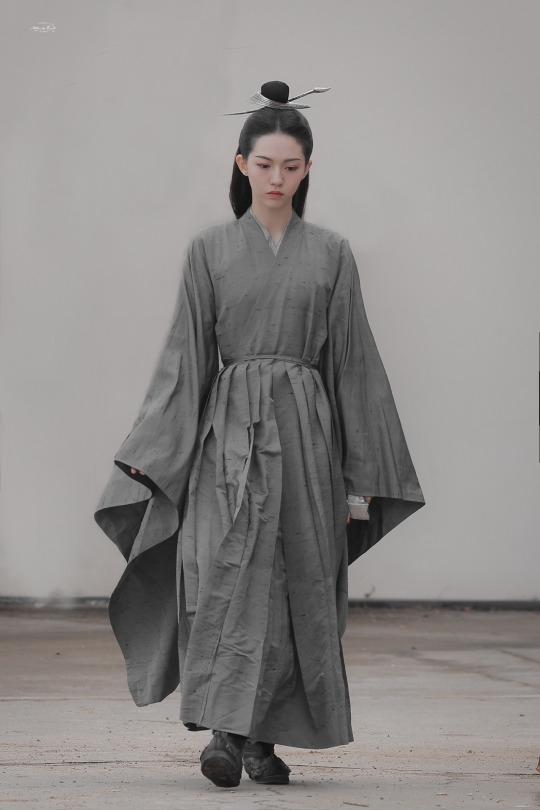
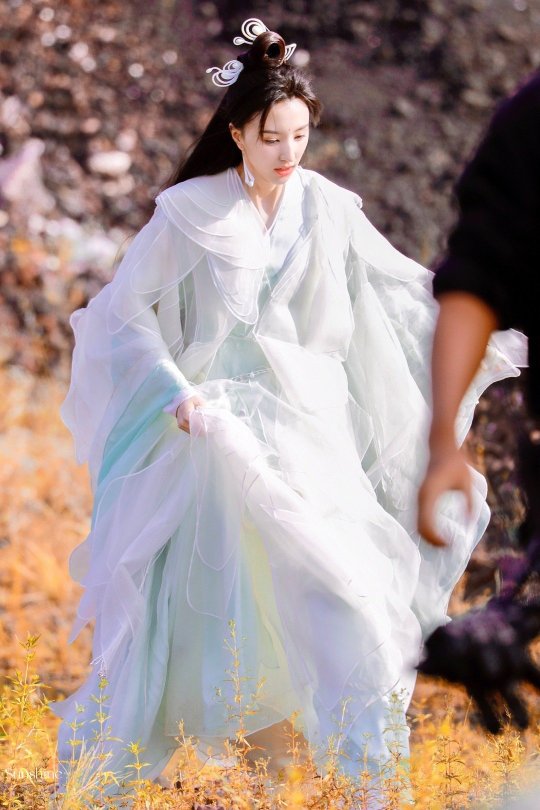
Liu Jinyan as Ling Wen & Wang Yueyi as Female Wind Master
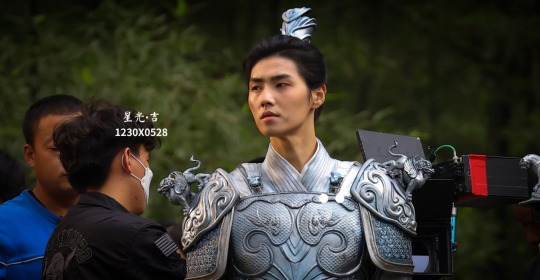
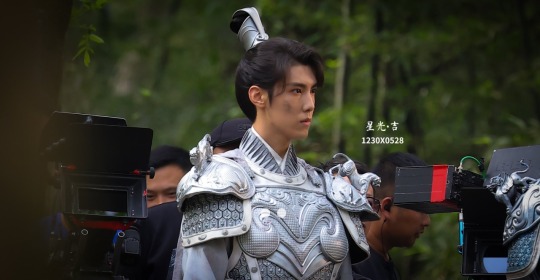
Xiao Kaizhong as Feng Xin/Nan Yang & Cai Yao as Mu Qing/Xuan Zhen
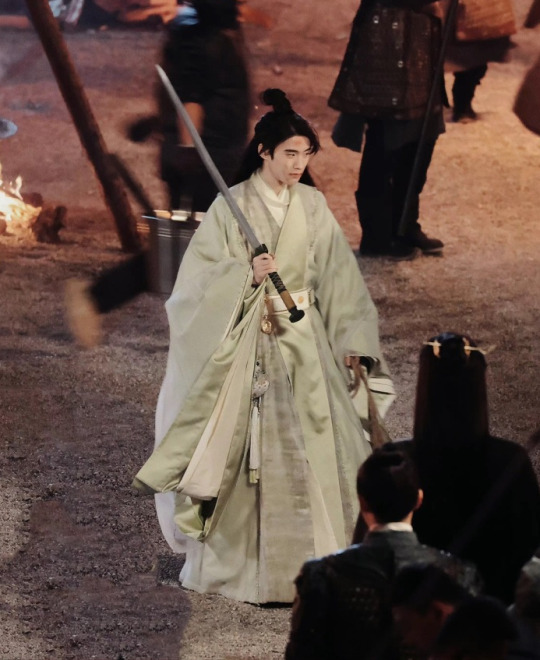
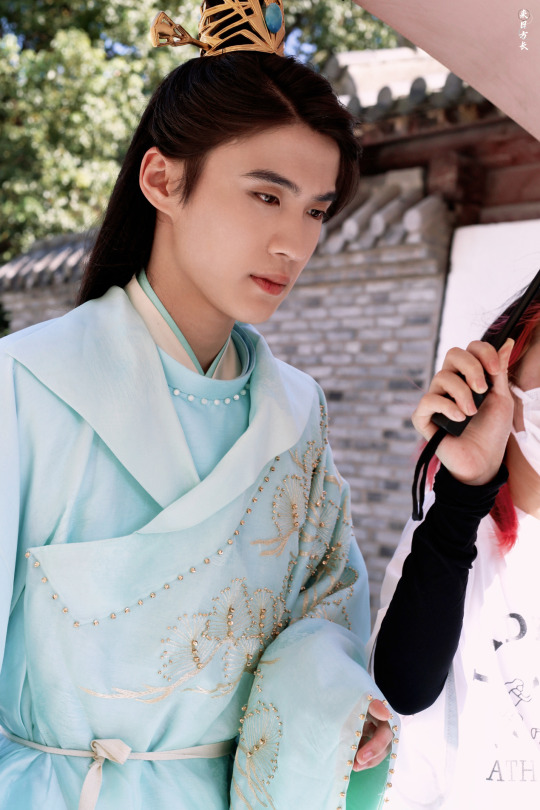
Bian Tianyang as Qi Rong/Prince Xiao Jing/Green Ghost
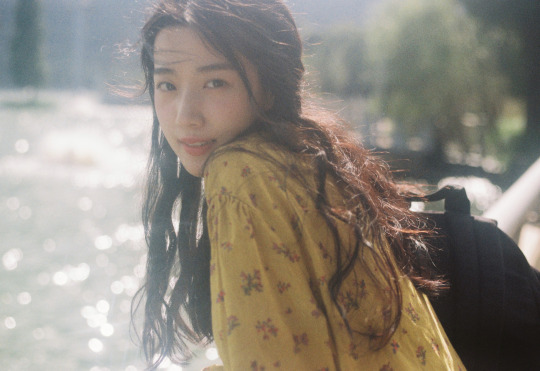
Lu Yuxiao as Yushi Hung/Rain Master. She played Shangguan Qian in My Journey to You, but as she was fairly unknown at the time of filming jxgz so there are no photos to be found of her as Rain Master 😩.
Anyway, let's all quietly try to will this into existence with physic powers etc.
Thanks for sending me an ask, have a lovely day anon!
(∩^o^)⊃━☆
#吉星高照#天官赐福#eternal faith#ji xing gao zhao#jxgz#tgcf#ask#anon#o#thanks for sending me a thing!#i am hugging you back#sorry as usual for taking 84 years to reply to asks#not sure how much clout actor popularity has#but some actors are much more popular now than at time of filming#zlh has had 4 dramas out this year alone#and chang huasen is really charismatic in a journey to love right now#i hope he get's more main roles in the future!#long post#oh so you can put individual links for each picture but only if they're full size and not made into a grid#even longer post sorry!
170 notes
·
View notes
Text
Zhuge Qing said Wang Ye is worthy of his investment because Wang Ye is kind, gentle, look after other people and try to understand them so he's ditching the other guy. Wang Ye didn't buy his bullsh*t so he's like "Oh I get it. You already get what you want from him so he's useless to you now." He's giving me "I'm watching you mister" vibe lol and scheming Zhuge Qing tease him with a "Guess?"





#schemer and good person is probably my favorite trope in my ships#but good person should not be naive in the dynamic bc ill just feel awful#good person should be sharp enough to call the schemer shenanigans#zhuge qing#wang ye#hitori no shita#yi ren zhi xia#i am nobody#donghua#the outcast
4 notes
·
View notes